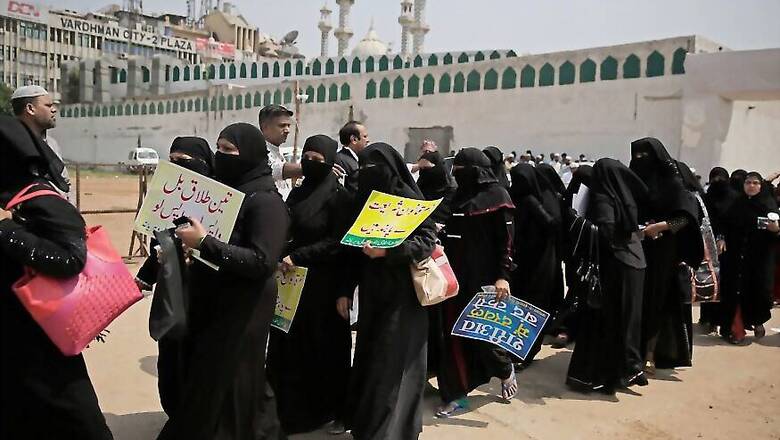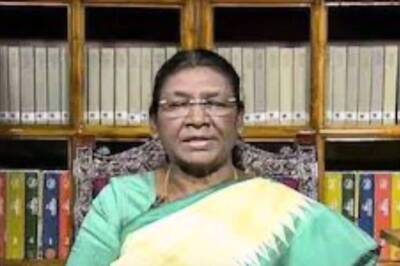
views
New Delhi: The Muslim Women Protection of Rights Bill 2018, colloquially known as the Triple Talaq Bill, will now have a clause that would ensure Muslim husbands have a right to approach the court seeking bail after being arrested on charges of instantaneous talaq.
During the last Budget Session of the Parliament, when the bill was tabled in Lok Sabha, there was a strong demand to refer the bill to a parliamentary select committee. However, with a sizeable strength in the lower house, the government had managed to pass the bill.
The bill got stalled in the Rajya Sabha amid protests by the opposition. The provision of bail was one of the biggest sticking points. In the tweaked version passed by the Union Cabinet, the offence would stay non-bailable but a judge can decide whether to grant bail after hearing out the wife.
Giving instant triple talaq would still continue to be illegal and void and will attract a jail term of three years for the husband. But the case can be dropped if both sides agree, the new version of the bill says.
The proposed law would only be applicable on instant triple talaq or 'talaq-e-biddat' and it would give power to the victim to approach a magistrate seeking "subsistence allowance" for herself and minor children.
However, the All India Muslim Personal Law Board is still not impressed with the changes.
Board member and legal counsel, Zafaryab Jilani, told News18 that there were several other amendments that were demanded to be brought in and this amendment did not "portray the true picture."
"Let the bill be introduced in the Rajya Sabha. The bill is void in totality and hence objections will remain but there were other specific objections made too that have remained unanswered in the latest cabinet meeting," said Jilani.
Zakia Soman, convener of Bhartiya Muslim Mahila Andolan, who was one of the key petitioners in the case, told News18 that though this amendment was a welcome change, but "there still exists others that is needed."
"Yes the bail amendment is welcome but the provision which makes FIR registered by anyone acceptable needs to be amended and it has to be only at the behest of wife. There also needs to be a provision which states that a wife will have a right over her matrimonial residence even though the husband is penalised," said Soman.
Union Law Minister Ravi Shankar Prasad, who had tabled the Muslim Women (Protection of Rights on Marriage) Bill, called it a “historic day.”
Saying that the bill should not be seen through the prism of vote-bank, but from the humanitarian side, Prasad said the bill was “not about religion but about justice and respect for women.” He said that the bill was essential for gender equality and dignity.
According to the bill, a woman can also seek the custody of her minor children from the magistrate who will take a final call on the issue.
The bill was passed in Lok Sabha after the House rejected a string of amendments moved by various opposition members. MPs from the RJD, AIMIM, BJD, AIADMK and All India Muslim League had opposed the bill, calling it arbitrary in nature and a faulty proposal.
Owaisi was the strongest critic of the bill and had said that "dowry deaths and other crimes against women did not stop even when specific laws were made against these practices."
"Between 2005 and 2015, there were more than 80,000 dowry deaths in India. Twenty-two women die daily on account of dowry, and even after the Nirbhaya incident, there was a rapid increase in number of rape cases. Law is not the answer," he had said.




















Comments
0 comment